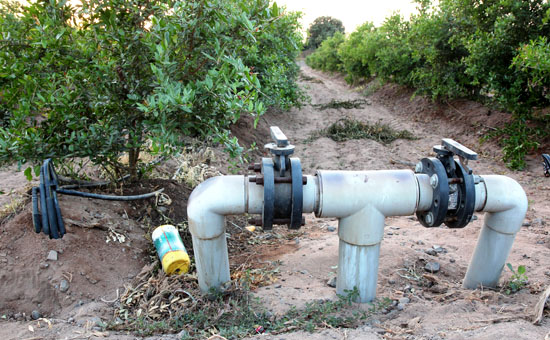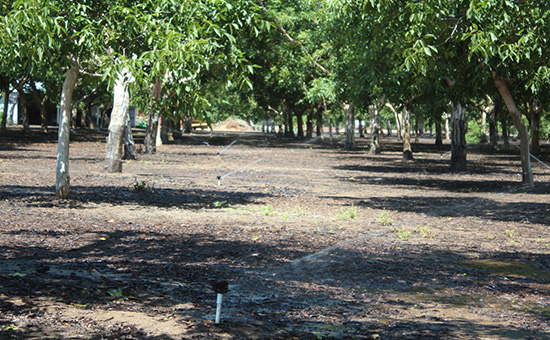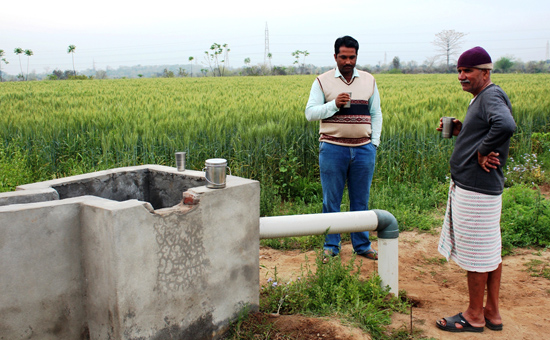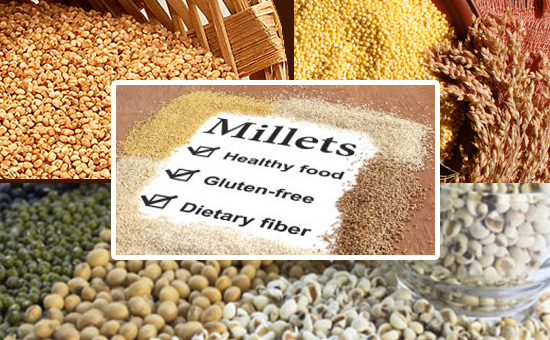- Free power, excessive use of pesticides, over-exploitation of ground water and rising Cancer cases have affected the state’s well-being. IDEAS to revive farming in Punjab.
- Personal experience of a son on how his father
did farming in Maharashtra about 40 years ago.
Have you heard of CANCER TRAIN? The Abohar
Jodhpur train was given this name. According to a December 2020 Tribune report, “60 per cent of its passengers were cancer patients who came from all across Punjab. On an average, the train was the lifeline of 100 cancer patients daily.” Patients get off at Bikaner to visit Acharya Tulsi Cancer Hospital for treatment.
Have protesting farmers-their funders-NRI’s-Singers-State government (SG) spoken about cancer problem and its link to farming practices.
Journalist turned champion of Organic Farming,
now Director of Punjab based Kheti Virasat Mission Umendra Dutt, “uncovered a darker dimension of the Green Revolution - from the rise in cancer cases in the region attributed to indiscriminate use of agrochemicals, rising costs of farming, destruction of soil cover, overexploitation of groundwater to a food chain and ecosystem contaminated by toxins.” Source May 2020.
Dutt adds that Punjab owned 1.5 per cent of the
agricultural land in India, yet it used 18 per cent chemicals on its farms. Source
Due to excessive drawing, groundwater is found deeper
and deeper. This affects water quality, crops and
their yields often. Since power is free going deeper for groundwater does not
cost farmers as much. Punjab
tops in overexploitation of ground water
According to a 2017
article in Tribune by Agricultural scientist SS Johl and veteran I M Singh, “Environmental damage is incalculable as rice crop is the major contributor to pollution of aquifers and damage to the ecosystem.” Source
Pesticides are mainly used by farmers who grow rice
and cotton. Farmers mainly grow products that are sold at MSP (Minimum Support
Price). Free power to farmers, starting 1997-98, has encouraged farmers to grow
rice and discouraged crop diversification.
According to a December 2019 report in Tribune “as many as 152 patients were detected with cancer in Punjab’s Fazilka district this year. Sources say contaminated drinking water, excessive use of fertilisers and insecticides is said to be the cause.”
According to a DownToEarth.org report of 2015, “Faced with increasing scientific evidence of pesticides-induced health disorders, the Punjab government has decided to begin a cancer registry programme. Cotton farmers were the worst affected because the maximum amount of pesticide is sprayed in cotton fields. “Banned pesticides are also in use,’ Satbir Kaur said”. The report states, “The survey found that pesticides
seeped into the groundwater, which the villagers consumed through hand pumps
and canals.” Read Pesticide
residue found in blood of Punjab farmers
 Orchha in MP is a must visit.
Orchha in MP is a must visit.
M.P. is a top wheat producer like Punjab. Why do its people not face similar health problems like Punjab does?
Author spoke to a farmer from Bhopal who said
that they used very little pesticide. Actually, wheat needs Urea/DAP, little pesticide. No wonder makers of
Aashirwad Atta, advertise it is made from Sharbati (MP) wheat. Perhaps
consumers know farmers of MP use less pesticide, so one reason why M.P. wheat is preferred.
The cause of Punjab problems are growing of rice/cotton, over-use
of pesticides, intensive farming, over-exploitation of groundwater and a
damaged ecosystem. These are unique to Punjab or else also top rice producers
West Bengal and Uttar Pradesh would have similar problems.
All
this affects soil quality adversely. To this add contamination of ground water
due to excessive use of pesticides and lack of biodiversity. Thus, agriculture
and public health are both adversely affected.
Note, “The Malwa region of Punjab, a cotton-growing belt, has the highest incidence of cancer in India, admitted Montek Singh Ahluwalia, deputy chairperson of the Planning Commission while releasing the plan for states for 2012-13. Source
It is difficult to establish a direct
relation between use of pesticides and cancer. To be fair, is the
problem of cancer only in Punjab?
Tata Memorial Hospital expert, Dr Rajesh Dikshit said in 2017, “A high dose of pesticides and fertilisers leads to lymphoma cancer (that affects the immune system) and that of uranium causes leukaemia or brain tumour. There is nothing abnormal about the number and kinds of cancer prevalent in Punjab.”
In view of the above it might be useful to know
how farming was earlier done in say Maharashtra.
 Drip irrigation Kutch.
Drip irrigation Kutch.
Fifty two year old Dr Atul speaks about farming
practices followed by his father. He spent the first 20 years
in their village and continues to manage the farm today.
Earlier, agriculture and livestock farming were intertwined. The remnants from farms were used to feed cattle and cow dung / household waste was used as fertilizers. Thus, a farmer's income from both ensured that the family had enough to eat.
They never purchased seeds, but reserved last year seeds in muddy pots for next year's cultivations. Use of natural products meant lower production cost, better soil fertility amongst others.
Earlier agricultural land was divided
into two parts. Half was used for production for a year. The other was left
uncultivated and rejuvenated through natural means, for e.g., by adding cow
dung.
Since needs were less and animal
products available the surplus was distributed to the more needy sections of
society.
Every farmer had cattle meaning there
was adequate supply of manure in the form of cow dung. With dwindling cattle
stocks supply of cow dung has fallen drastically.
However, with time and an increase in
population things changed.
Farmers started using tractors, chemical
based fertilisers and pesticides. This increased output and production cost but
reduced soil fertility. Today land is over-used, affecting its fertility
adversely. From being self-sufficient the farmer has to now depend on traders
for supply of seeds and fertilisers.
The problem is serious. Dutt wrote in 2010 about ‘Villages up for sale'. It was a first-of-its-kind protest in India at that time. In March 2002, Harkishanpura of Bathinda district put itself up for sale.”
According to this 2015 TOI report Sunita Narain of CSE said, “Maximum residue limits (MRLs) for pesticides are reviewed periodically globally to incorporate changes in dietary pattern and agricultural practices but in India MRL for registered pesticides are incomplete and not done periodically.” Can the government tell when was the last update done?
 Micro-irrigation
by Sikh farmers in Yuba City, USA.
Micro-irrigation
by Sikh farmers in Yuba City, USA.
Free Power, Pesticides, MSP have affected Punjab's well-being. Suggestions to revive farming-
1. SG (State government) must review and make public impact of pesticides used. Regulate
use, bans are counterproductive. Enlighten farmers about downside of excessive
use.
2. SG should assesse farmers' exposure to chemicals. Will farmers co-operate knowing that pesticides/fertilisers are necessary for production.
3. SG to stop free power to farmers. Small farmers to be subsidised through DBT. This might reduce rice production. Encourage crop diversity means growing millets and vegetables/fruits.
4. Researcher Devendra Sharma says that Punjab needs to move away from the intensive cropping system followed since the Green Revolution. Source
If Sharma’s advice is followed it will reduce farmer income/purchase of markers of affluence in an assertion of class identity. Source A
Harvest of Distress-Sangrur
5. SG should promote Micro-irrigation techniques (drip and sprinkler irrigation).
Are farmers to blame for over-exploitation of land or governments for continuing MSP?
 Using Ground Water in Punjab
Using Ground Water in Punjab
6. Open more cancer hospitals for e.g. Homi Bhabha Cancer Hospital, Sangrur was set up with aid
from the SG. NRIs/India Inc/Actors can co-fund. An AIMS is being set
up Bathinda.
7. SG must undertake a district wise survey to ascertain areas where underground water is unfit for human consumption and supply consumable water.
8. SG to undertake water recharging by constructing check dams/village ponds and revive river systems.
9. Under the Right to Food Act, grains given at subsidised rates are wheat and rice. Centre should amend act to include millets. It will reduce demand for grains.
10. Centre must start an advertising campaign that eating millets than wheat/rice is better for the environment, health (for eg finger
millet or Ragi is a powerhouse of calcium. Pearl millet or Bajra has high iron,
Foxtail millet or Thinai in Tamil is high on protein)
and requires less water to produce. Source
 Promote Millets.
Promote Millets.
11. Centre must start Production Linked Incentive scheme for Protein crops (pulses) and Oilseeds, which are otherwise imported, Atmanirbhar Bharat.
12. SG and Centre should promote Natural Farming. Simply put, it is chemical-free agriculture. It has potential to reduce fertiliser subsidy.
13. Punjab needs a Non-Jaat chief minister, perhaps a SC, who can think beyond vote-bank farmer politics.
Farmer’s real wealth is water and soil so work towards restoring that. Stop being obsessed with harvest volumes and MSP. Will the state government and Punjab
farmers assume responsibility for their future or transfer the buck to the
Centre. If they do not accept change the next generation might find Punjab becoming a
desert with more sick people.
Author does not claim to be an expert in agriculture. Cover pic credit Indiamart.com Article pics by author.
Also
read
1. Personal
Story of Bimla Devi cancer patient going from Bathinda station to Bikaner
2. Downside of Punjab style Fertiliser based Farming
3. Increasing
burden of disease affecting the state, focus on public health and groundwater
contamination
4. MSP, Subsidies are root of Punjab farm crisis but farmers are fighting to keep them
5. Residue
of a revolution
6. A
social crisis in Punjab that none wish to talk about because of record harvests
7.“Zero budget” as the name implies, is actually a system of agro-ecological farming that relies on locally available inputs, including urine and dung from local cow breeds, with emphasis on mulching and multiple cropping, thereby reducing the cost of production. Source
8. Punjab
agriculture is crying for change . In Chhattisgarh, instead of going in for increasing crop productivity to emerge out of the prevailing farm crisis, the new Congress government, has incorporated the traditional “Narwa (water), Garuwa (livestock), Ghurawa (compost/biofertiliser), and Baadi (backyard cultivation)” in an interesting agro-ecological approach to be accomplished at panchayat level.
9. Why
mandatory MSP is a dangerous idea
10. An intellectual biography of India’s new farm laws
11. How
poor land records add to farmer frustration
12. Punjab
farmer subsidy higher than annual income in rest of country
13. This
is about politics, not farmers rights
14. Bills
of Change, Punjab should reduce its subsidy structure and reduce MSP dependence
15. Which
government is responsible for farmer distress